The Best Books on Stoicism | Five Books Expert Recommendations
PHILOSOPHY »
ANCIENT PHILOSOPHY
The best books on Stoicism
recommended by Massimo Pigliucci
The Stoics offer us valuable strategies of thinking about and dealing with hardships that remain relevant for modern society, says the philosophy professor and author Massimo Pigliucci. Here he recommends the five books that best express the essence of Stoicism and how it might be applied to real life.
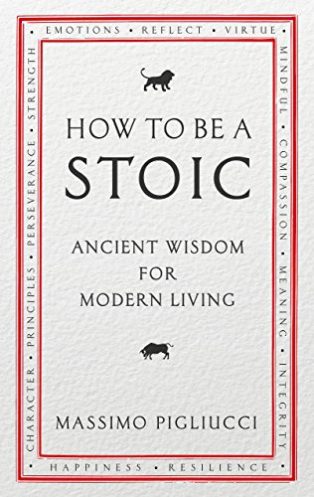 Buy
Buy

Massimo Pigliucci
Massimo Pigliucci is a professor of philosophy at CUNY City College, the author of ten books and the former editor-in-chief of Scientia Salon. He organises
Stoicon, an annual meeting of people interested in exploring Stoicism as a philosophy of life.
Ancient PhilosophyHow to Live PhilosophyStoicism
Save for later
Stoicism, in contrast with a lot of contemporary philosophy, puts a great emphasis on living well: the person who studies Stoicism, if sincere, will also practise it. I know you’re both a theorist and a practitioner. Could you say a little bit about how you came to Stoicism?
We’ll get back to the theorist part because I’m definitely not an ancient philosophy scholar, so I’m not a theorist in that sense, but
I’m interested in Stoicism as both theory and practice for today’s world. How did I come to it? It was a long circuitous route. A few years ago I went through a midlife crisis and s
witched from my first academic career as an evolutionary biologist to become a philosopher. Within philosophy I’m interested mostly in the philosophy of science, but you can’t switch to philosophy and start studying it seriously and just be limited to your own technical field of expertise; at least you can, but I don’t think you should.
I began reading more broadly, and—coming to philosophy in the second half of my life—I had a lot to catch up with. I started reading about ethics. I read Kant and Mill, and looked at modern ethics in terms of deontology and utilitarianism in all their forms. I found those ways of understanding ethics wanting. They are wonderful authors, but it didn’t click with me. Then I remembered studying philosophy back in high school – I grew up in Italy where it is mandatory to study three years of history of philosophy. I remembered reading about the ancient Greeks and Romans, and had vague recollections that these people had a very different conception of ethics.
The first stop there was obviously Aristotle.
I rediscovered virtue ethics, and that really did appeal to me immediately. Then I went beyond Aristotle and read what little there is available on Epicureanism and some of the other Hellenistic schools of virtue ethics. All this interested me because it clearly embodied a much broader conception of ethics.
Most contemporary ethics is focused on answering narrower questions such as: ‘Is this action right or wrong?’ and: ‘Under what circumstances is this permissible or not permissible?’
“For the ancients, ethics was the study of how to live a good life”
The ancients had a much broader conception of ethics. Ethics, for them, was the study of how to live a good life. That is what really appealed to me. After reading Aristotle, I moved on to explore other post-Socratic philosophers. Of course I also went back and read the Platonic dialogues to look at the source of all of this. Then I heard about an event that takes place in the UK called Stoic Week; I remembered Stoicism from studying it in high school. In fact, I grew up with that tradition because Stoicism was the dominant philosophy in ancient Rome, and I studied Roman history at school.
I had a vague idea that it was the attitude Mr Spock takes in Star Trek: going around life with a stiff upper lip, or something like that. So the first time I heard about Stoic Week I thought, ‘that’s weird’, and I didn’t pay much attention to it. I read an article about it. The following year, the same thing happened, and in the meantime of course I kept reading about virtue ethics. Eventually I said to myself, ‘you know, maybe it’s time to take a second look at Stoicism and see
what it is that these people are actually doing. Why did they choose to hold Stoic Week as opposed to Epicurean Week, or Aristotelian Week, or whatever?’ Then I got hooked.
As soon as I read the
Modern Stoicism blog on the University of Exeter site, I started exploring on my own, and all of a sudden things started clicking and fitting in, and the puzzle was coming together. So that’s how I got started. The very first book that I read after this renewed interest in Stoicism was
The Discourses of Epictetus.
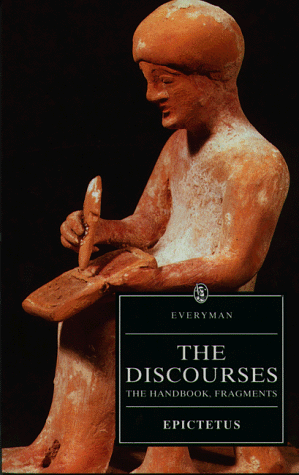
That’s your first choice of books.
Epictetus, famously, was a slave in his early life, wasn’t he?
Yes. He was a very interesting figure. He was a slave, born in Hierapolis, which is modern Pamukkale in Turkey, which at that time was a Greek city and became a Roman colony in the late 1st century/early 2nd century. He was born a slave and badly treated when he was young: his master, through either carelessness or viciousness, broke his leg, and as a result he was crippled throughout his life. Then, at around age 15, he was bought by a much better master, who turned out to be Nero’s personal secretary.
Epictetus was brought to Rome, and for a while lived at Nero’s court. Then Nero became more unhinged both in life and in the way in which he was running the business of the empire, and eventually that led to revolt. Nero committed suicide—well, in fact Nero botched his attempted suicide and it was his secretary, Epictetus’ master, who helped him in the end, so he’s the one who killed Nero.
“Domitian kicked out all philosophers from Rome and sent them into exile”
As a result of those events, Epictetus then started having his own quasi-independent life in Rome. Eventually he became a freedman, which was not unusual for bright slaves in ancient Rome. In the meantime he had, under the tutelage of his second master, started reading and learning about philosophy, and became the pupil of Musonius Rufus. Musonius was a major Stoic philosopher in ancient Rome. Epictetus studied with him for a number of years, and eventually started teaching on his own.
In the meantime, several political events happened in Rome: there was one emperor after another. One was Domitian, who was a little unhinged himself and wasn’t particularly fond of philosophers: all this talk about virtue and how you should do things as opposed to how you actually do things I guess didn’t agree with him.
Domitian kicked out all philosophers from Rome and sent them into exile.
Really? I’d never heard that.
Yes, this is something that few people hear about. When we think about Rome, we think about persecution of the Christians, but actually philosophers, and in particular the Stoics, were persecuted by several Roman emperors because they really didn’t like this constant reminder that you should be doing better than you are doing. A number of philosophers were put to death and a number exiled. Musonius Rufus, Epictetus’ teacher, was twice exiled. Epictetus was also exiled by Domitian. He went to North West Greece to a place called Nicopolis and he established his new school there. He was about 40 by that time. Later on he was recalled to Rome, but refused to leave. He lived in Nicopolis to a ripe age of 80, which for the time was remarkable.
That’s the equivalent of 200 today presumably.
Yes. It was really amazing. He kept teaching and he built a reputation so that fairly wealthy people sent their kids to Nicopolis to study with Epictetus and one of the later emperors, Hadrian, became a good friend of his. Hadrian was impressed by Epictetus and went to visit him, and they met a few times and became friends. Epictetus, by the end of his life took a wife of about his own age, apparently so she could help him raise a child fathered by a friend of Epictetus’. The child was destined to be exposed—which was the euphemism in Rome for being left to fend for himself in the elements, and probably die.
“Epictetus was a slave who became a prominent philosopher and teacher, and became a friend of emperors”
Epictetus’ was an interesting life: a slave who turns prominent philosopher and teacher, who becomes friends with emperors and is kicked out by other emperors: it’s fascinating. Epictetus didn’t write any books; he was a teacher, in the same vein as Socrates, who made a point of not writing his ideas down. The two books we have by Epictetus are called the Discourses, and the Enchiridion—‘enchiridion’ means ‘handbook.’
Both the Discourses and the Handbook were put together by one of Epictetus’ most brilliant students, Arrian. Arrian was probably about 23 or so when he did this. After a few years as Epictetus’ student, he became a historian and a writer in his own right. He wrote the definitive account of Alexander the Great’s expedition. Arrian was very well known in the ancient world.
Do many of his works survive?
Some of his works survive. He put together eight volumes of the Discourses—basically these are his handwritten notes from Epictetus’ lectures. Of those eight books, unfortunately only four remain. The other four got lost somewhere during the Middle Ages.
The Enchiridion, the Handbook, is the short version that Arrian put together by picking the best bits from the Discourses.
So that’s all we have from Epictetus today: the surviving four volumes of the Discourses and then the Enchiridion, which is very short.
What’s the main thesis of the Discourses? Why is it so interesting?
It’s interesting because
it guides you on how to live your life from a Stoic perspective. The chapter titles are topics that Epictetus debated with his students, and these topics were often very practical. There’s very little theoretical philosophy in Epictetus. He wasn’t interested in metaphysics. In fact, he explicitly told his students that
whatever the nature of the world turns out to be doesn’t make any difference to human life. If the universe is made up of atoms, or it’s made up of something else, those are interesting questions but they’re not going to affect your life. In that sense he’s an unusual Stoic because most Stoics were into
system-building, especially the early ones: the Greek Stoics before the philosophy moved to Rome, made major contributions to logic, they wrote a lot about metaphysics. Epictetus was focused on ethics, which is the third Stoic concern.
So he’s agnostic on metaphysics?
That’s right. He says whatever turns out to be turns out to be. There are people interested in that stuff and they’ll figure it out, but really when you have to deal with your daily life and the challenges that it brings, that’s not going to be particularly helpful.
Am I right that many of the Stoics grounded their ethics on metaphysics, so the metaphysics actually shaped the ethics?
Yes. That’s an interesting question. The early Stoics thought that there were three areas of philosophical inquiry.
What they called ‘physics’ is what today we would describe as a combination of metaphysics and natural science. Their
‘logic’ we would still call logic today, but for them it included epistemology, cognitive science, and psychology. And then there was the
‘ethics’, which was
the study of how to live your life. Their idea was that
in order to figure out how to live your life, you needed to understand how the universe works and what your place in it was—that would be the ‘physics’—and you also needed to understand how human beings reason and fail to reason well; that’s where the ‘logic’ came in.
Now, Epictetus didn’t necessarily reject this, he just said there were many different alternatives, many different ways of doing or understanding physics and understanding logic that would support the same way of living your life. So, in modern terms, we would say that Epictetus thought that the physics and the logic were relevant at some level to the ethics, but they underdetermine it. It’s not as if you need to know all the details about how the world works in order to figure out how to live your life.
---
Is that almost an injunction not to get het up about metaphysical questions at the expense of living well?
Correct. Exactly. In fact Epictetus says just this in several places in the Discourses. There are a couple of places, for instance, where he says that we can have interesting discussions about metaphysics or logic, but those discussions have to bear on specific ethical issues. If you’re just going off splitting hairs in logic, then you’re doing something different that’s not particularly interesting or particularly relevant to living your life.
“Some things are under your control and other things are not under your control”
Broadly speaking the Discourses are about how to live your life: they present the basic principles of Stoicism over and over, from different angles and exploring the consequences in different contexts. Arguably the most basic one, which Epictetus insists on several times, and is also how the Enchiridion starts, is his famous dichotomy of control: he says, some things are under your control and other things are not under your control. Then he lists the kinds of things that are under your control and those that are not:
things under your control are your behaviour, your decisions, your rational thinking processes; the things that are not under your control are all the externalities: your health, your wealth, your education, your stature in life, your reputation.
It’s not that you can’t influence the things not under your control, of course you can. He says so explicitly. But they’re not entirely under your control. You can only try to be healthy, and wealthy, and educated, and have a good life in the sense of externalities, but, you know, shit happens, so to speak—that’s not a direct quote—and Stoicism in the great part, especially Epictetus’ Stoicism, is about how to deal with situation where shit does actually happen. What do you do then? How do you react in life when things don’t go your way? The dichotomy of control is crucial in Stoicism, particularly to Epictetus’ philosophy.
When I began reading Stoic works I started making furious notes and highlighting things and then going back to quotations one after another. I just want to read you one which is right at the beginning of the Discourses, volume 1, chapter 1.32, it’s an example of the dichotomy of control, but it’s also an example of something that immediately endeared Epictetus to me: his sense of humour. He has a very wicked sense of humour, a very interesting sense of humour. Here’s the quotation:
I have to die. If it is now, well then I die now; if later, then now I will take my lunch, since the hour for lunch has arrived – and dying I will tend to later.
When I read that I started laughing. Ok, sure—death is inevitable. Is it coming now? If it’s now then I’m ready, let’s go, let’s do it, because everybody has to die; but if not now, then I’m going to do other things, and of course when death comes, it’s not under your control, so you just accept it, whenever it is.
It could be under your control if you commit suicide, couldn’t it?
Yes. Suicide is a big deal for the Stoics, and for Epictetus in particular. Epictetus referred to it as “the open door.” He says to his students several times not to take it lightly: suicide for the Stoics was a serious business and he was not saying jump out of the window at the first problem; but, he says, if you do get yourself into a situation where there really is no way out and life really does become insufferable, or so painful, or you realise that you cannot contribute any longer to society in any meaningful way, then the door is open, you can leave of your own accord. He also adds, which is crucial I think to understanding the whole thing, that it is that fact that the door is open that gives meaning to what you do. The very reason why you can keep on going, struggling on, and living your life, and trying to do your best, is precisely because you know that if it becomes unbearable, you do have another option.
I can see why Epictetus is so attractive. He led a fascinating life, and put forward a very interesting practical philosophy. But what about this caricature of Stoicism that the way you achieve independence from the contingencies of life is by somehow extirpating your emotions?
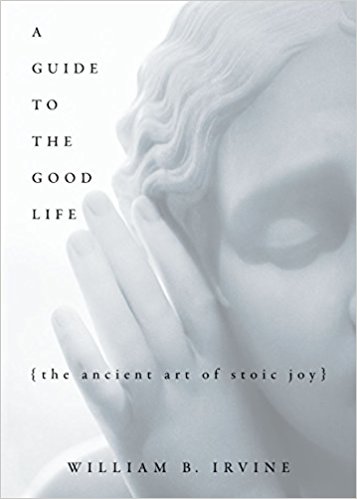
That is, as you say, a caricature of Stoicism; but it’s a very common one, and it’s not going to go away anytime soon. The second book that I recommend,
William Irvine’s A Guide to the Good Life, deals with this in some detail. There are several chapters in which Irvine goes into these ideas about
the Stoics and emotions. The basic idea is this:
yes, Stoics do have that reputation, but if you look at what they wrote and the way they actually behaved in life, they were far from emotionless.
We have excellent accounts of the lives of ancient Stoics: we know a lot about the Greek Stoics, beginning from Zeno, the founder of the philosophy, through Diogenes Laertius’ Lives of the Philosophers, which includes several mini-biographies of Stoics; and of course we also know a lot about Epictetus, Marcus Aurelius, Seneca, Musonius Rufus, and others too. We know what these people did, and how they practised their philosophies. There is nothing in any of these biographies or in any of their writings that suggests that they behaved in a Spock-like way and suppressed their emotions in order to think about things rationally. What they did, and they were very explicit about this, was recognise that there are different types of human emotions.
“Epictetus referred to suicide as “the open door””
The first emotional reaction you have to something, they called an
impression. So for instance let’s say that you are walking in the street by yourself at night and you hear a sound that doesn’t feel right. Your first impression, your first reaction might be one of fear, and the Stoics said there’s nothing you can do about that. There are natural reactions, and you cannot and you should not, in fact, suppress them. But what you should do, if it is at all possible, is examine them, step back for a second and say:
‘Why am I afraid? Is there really something to be afraid of, or not?’ If there is something to be afraid of, a real danger, by all means deal with the danger; but a lot of the time the first impression is actually misleading.
If you get angry, for instance, at something, think: ‘
Why am I getting angry here? Am I being insulted? What is an insult? What is this person who is insulting me trying to tell me? Is there some truth perhaps in what he’s saying? Should I even pay attention to an insult to begin with? Why am I reacting this way?’ The aim was to examine your emotion and to manage or gradually eliminate the negative, destructive ones. The obvious example of a destructive emotion, particularly in Seneca’s writing, was
anger. Seneca calls it a ‘temporary madness’. If you do things in anger, you’re very likely going to do things that you regret.
Even if you have anger and indignation at injustice?
I’m so glad you brought that up because indignation at injustice, a sense of injustice, those are positive emotions. The Stoics believed that good character is made of the practice of four fundamental virtues, we call them the cardinal virtues. One of those virtues is justice, and yes, a sense of justice needs to be cultivated because it is a positive emotion. The contrast between anger and justice is exactly this: that anger will cloud your judgement, even if it is justifiable anger, even if there is a good reason to be angry at something. If you react just on the basis of anger, you’re very likely going to make wrong decisions or act rashly; but on the other hand there are situations where you do want to cultivate a sense of indignation, a sense of justice being violated, and you do want to do something about it, and that’s a positive emotion—that’s something that the Stoics would definitely say you should do.
William Irvine’s book is part of the recent resurrection of Stoicism. It strikes me that there was this big movement in philosophy to reinstate virtue ethics, starting in the 1950s with Elizabeth Anscombe and various others saying that we’ve been caught up in an impoverished view of what ethics is, so let’s go back to the ancient Greeks, and particularly to Aristotle.
But it strikes me that the virtue ethicists, although they’ve theorised virtue, aren’t necessarily striving to be more virtuous. It’s not obvious that there’s a school of neo-Aristotelian people practically trying to be more virtuous. The really interesting thing about Stoicism is that, in its modern form, there are large numbers of people trying to practise Stoicism with a view to becoming better people. I may be doing virtue theory an injustice here, but I haven’t been aware of an increase in the number of virtuous people as a result of this philosophical study, but there are definitely people behaving stoically now.
I think what you’re getting at there is this separation between academic philosophy and practical philosophy. There was a series of studies a few years ago showing that academic moral philosophers are actually no more moral than the average academic.
They’re less moral when judged by a set of conventional critiera.
Eric Schwitzgebel did that research.
So there’s solid empirical evidence that that’s the case. The response by many academic philosophers has been: ‘What did you expect?’ But that’s like a mathematician, let’s say, or an economist, who’s caught badly managing his bank account and his personal finances, and who responds when challenged about this incompetence: ‘I’m interested in the theory here, not the practice’.
My response would be: well, maybe you should be interested in the practice, to some extent. I find that sort of study very disturbing. As I said before, I came to philosophy late in life, other than my early bout in high school, and I love the field. I’m very happy that I switched and I’m very interested in what I’m doing, but it is disturbing when you hear things like that, especially the rationalisation. You would hope that somebody would think it’s time to do something about this.
“It’s a sort of philosophical judo, what Bill practises”
One of the things I find interesting about the modern Stoic authors is that those people really do try to live their life that way. They’re not just writing about it; they’re not just theorising about it; they really practise it. Bill Irvine has become an expert, a virtuoso I would say, in dealing with insults, which is one thing that Stoics receive a lot. Let me give you an example: one day he was in his department and he met a colleague who said ‘Oh Bill, hi, I was thinking of citing one of your papers in my book’, and Bill was thinking, ‘Oh, that’s interesting—I’m glad that one of my colleagues thinks my work is worth citing’. But the colleague immediately added ‘Yes, I’m trying to decide on whether your work is just mistaken or downright evil’. Obviously that’s not a compliment. The way that Bill responded was straight out of Epictetus: he almost quoted Epictetus verbatim. He said: ‘Oh, well that’s because you only read one of my papers: if you’d read the other ones you’d see that I’m really evil.’ So he turned things around; that’s exactly what Epictetus did.
There is an anecdote in the Discourses where somebody, one of his students, tells him: ‘I heard so-and-so speaking ill of you.’ And Epictetus’ response is: ‘Well, that’s because he doesn’t know me well, because otherwise he would be saying much, much worse things.’
That’s like a kind of martial art: if you imagine in judo, somebody moving in a certain direction, well you help them carry on a bit and trip them up in the process.
Exactly, it’s a sort of philosophical judo, what Bill practises. As a result, he tells me, he’s been a much happier person, because a lot of things that were stressful for him, like his colleagues not thinking well of his work now just washes over him, and he’s even amused by it. Now, that comes with a caveat, because whenever I tell this kind of story, the objection is: ‘Ah, but that way you run the risk of not actually learning from criticism’. That’s not the point. The point is to ignore the insult, not the criticism. So the intelligent Stoic would react with humour or simply just ignore the insult, but then he or she would go back and think: ‘Why did my colleague object to that paper? What can I learn from that reaction?’
Epictetus is very specific about this, that you should do this, that you should analyse the problem with a calm eye; but what you shouldn’t do is react to the insult, because reacting to an insult is something that is under your control. The insult itself is not, but how you react to it is up to you. You can step back and say, ‘Well this guy is trying to hurt me, I’m not going to let him, I’m just walking away.’
Or you could just walk away altogether… You suggested that Bill is much happier as a Stoic, but is that the purpose of Stoicism, individual happiness? Is that the driving motivation for this kind of behaviour?
Excellent question. So, here’s the thing, the reason there was a shift between Greek Stoicism and Roman Stoicism. Just briefly, from a historical perspective: Stoicism started in Athens in the year 300, or 301 BCE in a school established by Zeno. It thrived in Athens until the Athenians made what turned out to be a fundamental political mistake siding with Mithridates against the Romans. As a result of that the Roman general Sulla marched on Athens and laid siege to the city, destroying both Mithridates and many of the Greeks. Now, after that event, we are talking about 1st century BCE here, there was no relevant school of philosophy left in Athens. The philosophers left.
This is referred to as the ancient philosophy diaspora: the philosophers from different schools went out into different places. Some of them went to Alexandria, some of them went to Rhodes, many of them went to Rome, including most of the Stoics we know from afterwards. This is referred to as the Early Stoa, which is the Greek version, and then the Late Stoa, which is the Roman version—there is also the Middle Stoa, which is the transitional period.
They went to Rome which was basically the enemy headquarters. Did they go as prisoners?
No they went of their own accord. They figured out that the heyday of Athens was over and the new power was Rome. So the reason I am telling you this is because it does go back to your question about the purpose of Stoicism, whether it is to live a happy life. For the early Stoics, the emphasis was on what the Greeks called the eudaimonic life. The eudaimonic life, which is often translated as ‘the happy life’, doesn’t really translate very well—it’s more like ‘the flourishing life’. For the Stoics in particular the eudaimonic life was a moral life. It was the kind of life where you are on your deathbed, you look back and you say: ‘Yes, that was worth it: there is not much that I’m ashamed of, that was a life well-lived, not just in the sense that I thrived in terms of material possessions, but mostly I was a good person.’
So that puts the emphasis on the virtues. Externalities, practical goods and things like that, are OK. There is nothing in Stoicism that says you cannot pursue wealth, health, education and all those sorts of things. There was nothing wrong with material possessions, as long as you never, ever traded those for virtue. So if, in order to acquire or attain health, or wealth, or education, you did something that was morally questionable, morally wrong, then you would be doing the wrong thing from a Stoic perspective. That was the view of early Stoics.
“There is nothing in Stoicism that says you cannot pursue wealth, health and education”
The later Stoics, such as Epictetus, based in Rome, added a second component to this. They retained this fundamental idea that it’s about practising virtue, it’s about having the good moral life, but they also added what they call apatheia, which of course is the Greek root for the English word ‘apathy’, and yet has nothing to do with it. They didn’t counsel apathy. What they did counsel was apatheia. The best way to translate this word is as ‘magnanimity’ or ‘great soul-ness’. So the idea was that you achieved tranquillity in life, you achieved what the Epicureans, who were rivals of the Stoics, called ataraxia or tranquility of mind, if you developed a magnanimous attitude towards the world. That’s why I gave you the example of the way Bill Irvine responds to insults. Bill’s response to insults is magnanimous. If someone insults him he uses humour to deflect the insult, and through this achieves inner calmness.
Just in passing, that strategy of turning insults into humour could result in a broken nose in certain contexts.
Yes. Funny you should say so. Epictetus says exactly this in the Discourses, he says: ‘I used to go round responding humorously to people and then I got my nose broken.’ And he adds: ‘— so I don’t do it anymore, I just walk away.’
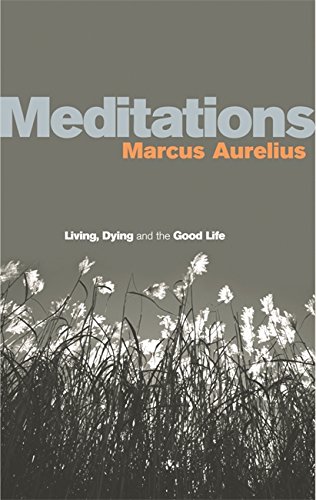
Buy
We’ve been talking about Roman Stoics, the most famous by far of the Stoic works is Marcus Aurelius’s Meditations, which is your third book choice.
This is probably the most famous book written by a Stoic. It has been in print ever since there have been printing presses. The same can be said about Epictetus’ Enchiridion incidentally, though Epictetus is far less well known than Marcus.
You could study philosophy to a high level without studying Epictetus. You could do two or three degrees in philosophy and never hear his name mentioned—in fact I think I did.
This is a recent thing, a 20th century phenomenon. Up until the 19th century, Epictetus was one of the most prominent philosophers studied. You’d find references to him everywhere: Descartes, Spinoza, many of the major philosophers you can think of were influenced by the Stoics and particularly by Epictetus and by Seneca, and the Enchiridion was used as a training manual in Christian monasteries throughout the Middle Ages.
Going back to Marcus’ Meditations, that book was never meant for publication. The Meditations initially did not have a title at all and it was known during the Middle Ages by the title To Myself because this was the Roman emperor’s personal diary.
That’s a better title.
Yes, it is a better title, I agree. It later became known as the Meditations, but it really was his personal philosophical diary. Marcus Aurelius had studied philosophy when he was young and in particular Stoicism. He had a major Stoic for a teacher who gave him a copy of Epictetus’ Discourses. You can see Epictetus’s influence in the Meditations. The Meditationsconsists of twelve short books. If you read them through you will see that there’s a lot of redundancy there. He comes back over and over to the same themes, and he repeats the same sorts of concept again and again. It is not so great to read through from beginning to end for this reason. Marcus wrote this over the course of a few years when he was on the German frontier fighting the Marcomanni revolt against Rome.
“Marcus Aurelius was the most powerful man in the world at the time, yet his wife was cheating on him, and his advisers who were treacherous”
The reason the Meditations have endured is because you really get a very clear sense of an interesting man who is struggling with his own limitations, as well as with the environment that’s surrounding him. Marcus Aurelius was the most powerful man in the world at the time, and yet he was dealing not only with major events like revolts throughout the Roman Empire, but also with his wife who was cheating on him, and with some of his advisers who were treacherous. Yet the first book of the Meditations opens with a long list of people whom he thanks. It’s an exercise in gratitude which is a basic Stoic practice: you have to remind yourself of the people you are grateful to because they are important in your life. The very first person he thanks is his grandfather: “From my grandfather Verus I learnt good morals and the government of my emperor,” and then he goes on to thank his mother, his teachers, his brother, and so on. If you read this the first time, you don’t really expect it. But then if you bear in mind that it is the most powerful person in the world writing this, and in his own personal diary—not done for show to other people—he starts out by thanking people who had made a good impact on his own life: it’s a very humbling exercise.
Often people say that the Meditations come across as preachy—and that’s true to some extent—but they forget that he is preaching to himself. He is not telling other people here’s what you should do and should not do; he’s telling himself, he’s reproaching himself. For instance, he says—this is one of my favourite quotations from the Meditations, from book two, chapter one:
Begin the morning by saying to thyself, I shall meet with the busy-body, the ungrateful, arrogant, deceitful, envious, unsocial. All these things happen to them by reason of their ignorance of what is good and evil… I can neither be injured by any of them, for no one can fix on me what is ugly, nor can I be angry with my kinsman, nor hate him
This struck me as really profound. A lot of people who surrounded the emperor would have wanted favours, and many were treacherous; but he says: ‘Remember, they do this because they don’t know better. They don’t have the advantage of your education, they don’t have the advantage of your self-reflection so they’re just doing this out of ignorance, ignorance of what is good for them or what is good to do: ignorance of virtue.’ And then he goes on, ‘but I cannot be injured by them, and nor can I actually hate them because they’re my fellow human beings, I am just as imperfect as they are: I also lose my temper, I also do things that I may regret or I’m not proud of, and we are all in the same boat together.’ I find these very down to earth observations of human nature and Marcus’ way of dealing with it both very refreshing, and at the same time actually very insightful.
But isn’t this an incredibly high ideal to live up to? The way you’ve described Marcus Aurelius, he’s trying to tell himself that he’s not going to be bothered by these people, but you sense, reading between the lines, that he probably will be.
That’s an interesting point about Stoicism: is it an impossible ideal? There, I think, a good comparison can be made between Stoicism and Christianity. Despite the fact that Christianity, early Christianity, adopted quite a bit of Stoicism, the early Christians rejected Epicurus because of his emphasis on pleasure—that’s why still today the word ‘epicurean’ is almost an insult: simply because the Christians completely rejected this worldview, and we have inherited the Christian disdain for Epicurus. But Christians did learn from Stoicism—not only from Epictetus’ Enchiridion but also Saint Paul knew Seneca’s brother, Lucius Junius Gallio Annaeanus, and so was aware of Stoic writing.
That’s really fascinating.
There was even a medieval forgery of an alleged correspondence between Seneca and Paul. You can find reactions to Stoicism in all the major Christian Church fathers beginning with Augustine, too, and then all the way to Thomas Aquinas. Now, the reason I’m bringing this up, in answer to your question, is because there is a good, interesting distinction between Christianity and the Stoic approach. For Christians, if you think about it, they have their role model—Jesus—who is, by definition, an impossible role model to emulate: he’s a god. I can aspire to behave as much as possible like him, but I’m never going to achieve that fully because he’s an immortal and I am not the son of God. I simply cannot be perfect, and that of course is part of the Christian doctrine of repentance for your sins.
For the Stoics, in contrast, they have a similar figure, a role model to whom they aspire and they call him the ‘sage’. The sage represents an ideal to aspire to, but is an achievable role model. The sage is a human being. It’s difficult, but not impossible to emulate the sage. Stoics are clear that there haven’t been many sages throughout history, but there have been some, and they point to some examples, the obvious one being Socrates, who was not a Stoic because he pre-dated the school. Many of the Stoics referred to Socrates as a sage. There were other examples too: Cato the Younger, for example, who was a famous political opponent of Julius Caesar during the Roman Republic; Seneca refers to him as a sage and as a role model. The Stoics also had fictional role models, ancient heroes and demigods like Hercules.
They may not have thought of them as fictional…
That’s debatable, though a good point. It’s hard to imagine that Seneca actually took stories about the Olympian gods seriously.
Well, it’s also hard to imagine that people do that in the contemporary world, but they do.
True, but the basic point is that even when the Stoics refer to demigods, if you look at the story of Hercules, for instance, the actual ancient myth, it doesn’t end well: for one thing, Hercules ends up dying of a horrible death. He makes mistakes, he’s a human figure, he’s somebody you can relate to but who constantly strives to do better: he constantly strives to do the right thing. This is the Stoic idea of a sage, which has some affinities with Buddhism. Buddha allegedly achieved enlightenment in his lifetime. In the Buddhist tradition that’s not easy. It’s not something that everybody can do—the fact that he as a man achieved enlightenment, however, shows that it is achievable. In Stoicism you have an ideal model, and, yes, most of us will fall short of that, but it is an achievable model. Seneca explicitly addresses this in his letter to a friend ‘On the Firmness of the Sage’ where he writes: ‘Don’t think that we mean by this just an unachievable ideal, just a theoretical thing. We think there are people who actually are sages, and those are our role models, and we try to do as they did’.
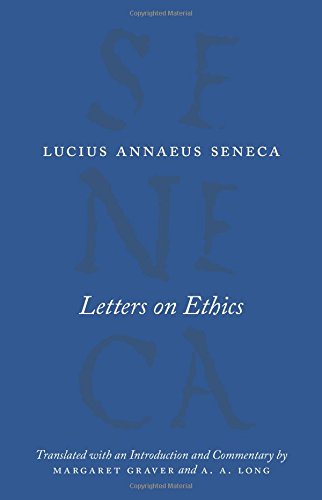
Now since you’ve mentioned Seneca, maybe we should move onto book four? This is described as Letters to Lucilius. Were they literally letters?
They literally were letters. The reason I picked this book is because a great deal of writing by Seneca has survived, more than that of other Stoics. Seneca was a playwright: he wrote tragedies, and even influenced Shakespeare. He also wrote long essays and epistles—a lot of epistles. There is a particular collection of epistles, normally referred to as either The Moral Epistles or the Letters to Lucilius. This book consists of more than a hundred letters. Many of them are short, just a few pages long. We know that Seneca wrote them late in life, during the last two or three years before he was ‘invited’ to commit suicide by Nero after he had fallen out of favour with the emperor. They’re written to his friend Lucilius, who was probably a real person living in Sicily at the time.
But they were written to be published, weren’t they?
Yes, they were.
So in that respect this book is very different from Marcus Aurelius’s Meditations.
Yes. Unlike the Meditations, these were not meant just as personal correspondence. They were personal correspondence, but when scholars look at the way the text is structured, they are convinced they were meant for publication. A lot of people, not just Seneca, wrote letters that were meant both as personal letters to friends or acquaintances, but also for broader circulation. The Moral Epistles is in some ways Seneca’s philosophical testament because it conveys his mature thought. Of course he didn’t know he was about to die prematurely, but he was an old man already, he was in his sixties, and he knew he wouldn’t live that much longer and was frank about it.
Seneca is often criticised, even by modern Stoics, as a somewhat ambiguous figure because despite being a self-professed Stoic he was preaching virtue at the same time that he oversaw Nero’s first five years in power. It was during those years that Nero became unhinged: he killed his mother, several of his wives, and his stepbrother.
So Seneca had dirty hands?
Exactly. Not just because he was there, but because he was Nero’s principal advisor, and in a couple of cases he wrote public letters defending some of Nero’s actions. On top of that he was immensely wealthy. He was a senator, and owned land all over the Roman Empire. As I mentioned earlier, there’s nothing intrinsically wrong with that for a Stoic. Stoics are not Cynics (in the ancient sense), so they’re not against wealth. But, one can make an argument, as Seneca himself does, that too much wealth becomes obscene because you become focused on the externalities at the expense of virtue. If you can use your wealth for good, you’re fine from a Stoic perspective, there’s nothing wrong with that; but if you keep accumulating wealth for the sake of it, then you’re definitely not a good Stoic.
“Throughout the Renaissance, for example, Seneca was thought of as close to being a secular saint”
These are some of the reasons why Seneca is criticised even by modern Stoics. There are two recent biographies of Seneca that take that kind of attitude towards the man. But there’s more to be said. First of all, this is all very debatable, since we don’t really have a lot of independent historical evidence on his life; and secondly, it’s a very recent development in the way we look at Seneca. Throughout the Renaissance, for example, Seneca was thought of as close to being a secular saint because he tried to do the best that he could do in the impossible situation of having to deal with Nero, and because in the end he did the right thing, by committing suicide, partly to save some of his properties for his family. If he’d refused to commit suicide then he’d have been killed anyway, and on top of that his family would have lost his property.
So that was quite a practical decision.
It was a practical decision, but on behalf of others. I’m talking to you from Rome where I’m on my sabbatical, and I’m writing a book on how to be a Stoic, which will be published next year by Basic Books. One of the things that I do, the reason I’m here in Rome, other than that my family is here and it’s a nice place to visit, is because I wanted to be in a place that would inspire me—I’m literally next door to the Colosseum and the Roman Forum. Whenever I need a break, like after our conversation today, I’ll just go down and walk by the Forum.
One of the things that I have done while here was to visit the Domus Aurea. This was Nero’s huge villa that he had built, as it turns out not for himself but mostly for public gatherings and diplomatic purposes. I’d never seen the Domus Aurea because when I was living in Rome, it was underground. Over the last few years archaeologists here in Rome have opened it up. It is right in front of the Colosseum, but it’s several metres below ground. You can visit now, but you have to make an appointment, and there is a nice guide from the Ministry of Cultural Goods, who walks you through for an hour or so. So I did this, and the woman that was leading the excursion of course talked a lot about Nero, and she also talked a lot about Seneca. I was surprised that her take on Seneca, which she says reflects the angle taken by many Italian historians and archaeologists, was much more positive than anything I had read in the English-speaking literature.
The reason for this is interesting. She said that if you examine the historical records, Seneca did a good job in the first five years of Nero’s reign. The first five years of Nero’s reign were a very good time for Rome and for the Empire, precisely because, she argued, Seneca and a colleague of his who was the chief of the Praetorian Guard managed to counsel Nero and restrain him to some degree. He would have been much worse without Seneca’s advice. When Seneca saw that Nero was going too far and was definitely going off the rails, Seneca tried several times to retire. He said: ‘This is it. I can’t do this any more. I can’t handle Nero, I can’t do any more good. So I’d rather retire outside of Rome in my own villa.’ He used some of his great wealth to try to bribe Nero to let him retire, offering two thirds of his lands to the emperor. Now I don’t know exactly how much money we are talking about, but it would have been a substantial offer. Nero refused it.
Presumably Nero could have just taken the property if he’d wanted it anyway.
Exactly. Nero refused and tried to keep Seneca in his entourage. Seneca eventually managed to achieve a sort of semi-retirement anyway. He started spending more time outside of Rome, and that’s when he wrote the Epistles to Lucilius.
And these are very practical pieces—they contain practical advice about dealing with situations where your emotions might lead you astray.
That’s right. If you look at just the titles of the letters, that’s revealing, titles such as: ‘On true and false friendship’. This was a crucial Stoic principle, the idea that you really should surround yourself with good people, ideally people who are better than you, because that’s the way you learn, that’s the way you challenge yourself.
That’s easier for some of us than others.
I know, right. Then there’s: ‘On the terrors of death.’ Death was a constant Stoic theme. Seneca famously said that ‘we die every day of our life,’ by which he meant that our entire life is a preparation for the ultimate test: how you handle death.
When he said we die every day, did he mean we die because we sleep? Or we die because we have fear of death, or something different?
No. Seneca meant that every day that passes brings us one step closer to the end of our lives. For the Stoics, what makes our life worth living is precisely the fact that it’s finite, and it is something that we need to be aware of.
So actually the translation might be better: ‘we are dying every day’?
Exactly, and in fact that is the title of one of the two recent biographies I mentioned of Seneca: Dying Every Day. Then there is an essay on old age, for instance, on how to age gracefully and deal with it if you’re lucky enough to live to experience that.
So you think it’s lucky to experience that? From what I’ve seen of it, plenty of people are unlucky enough to live to old age.
That’s right, it depends on how you look at it, on your attitude. There are so many topics that Seneca covers. Another one I like is called, ‘On festivals and fasting’. Seneca wasn’t fond of the Roman games and festivals: he thought they produced a lot of noise and a lot of confusion. He uses that starting point as a way to counsel his friend Lucilius, and therefore his audience at large, about moderation. He writes, for instance, that it’s good to fast every now and then, because these moderate exercises of self-deprivation, a day or two without eating, remind you that you can deal with not being fed. If in fact one of these days, as a result of externalities or adversity, you really do find yourself starving, you will be psychologically prepared. You know that you can handle it, within physiological limits.
That’s one benefit, but the other one, and this is something that Bill Irvine in one of the other books that I mentioned also emphasises, is that the psychological effect of these exercises in self-deprivation is that when you come out of them you enjoy what you have much more: the self-deprivation reminds you of just how good it is even to eat some simple food. You don’t need to go for a gourmet meal, you don’t need to go for really fancy cuisine, you can appreciate some good bread, or good wine and recognise that this is an incredibly enjoyable experience.
But carrying on with that style of thinking, you could end up getting someone to water-board you for a little bit, so you realise how lucky you are to be able to breathe.
That would be pushing it. I think the Romans would definitely not go that far. Seneca and the other Stoics are very careful to remind you that you don’t do these things in order to punish yourself, something that, again, some of the late medieval Christians actually did.
Through self-flagellation and the like.
Yes. There’s nothing like self-flagellation in Stoicism. In fact one of the four Stoic virtues is temperance—self-control, so that you do everything in moderation, including, of course, these Stoic exercises of self-deprivation. One of my favourite exercises which does come straight out of Seneca’s writing and the ancient Roman tradition is this idea of taking a hot shower and then during the last few seconds turning it completely cold. This shocks your system.
“The psychological effect of these exercises in self-deprivation is that when you come out of them you enjoy what you have much more”
The Romans did this on a regular basis. They went to the thermal baths, starting with a hot sauna; then they went into hot water, what they called a calidarium; and then they jumped into what they called the frigidarium, which was this pool of really, really cold water. This cold shock has a number of effects. First of all, interestingly, there is modern research that shows that this really does have physical benefits: it helps to boost your immune system, and things like that. Obviously the Romans didn’t know that. Beyond that, it reminds you that you can deal with these kind of things. A hot shower is a luxury. Most people throughout most of history didn’t have hot showers, didn’t have hot baths.
This is an interesting aspect of Stoicism because some people think that many elements of the British public school system, the private school system, were modelled on Stoicism: that a certain amount of deprivation, quite a few cold showers, cold baths, early morning runs and so on, built character. For some people, though, these sorts of enforced deprivation have been quite psychologically damaging.
That’s a good point. Think about it this way. What you’re describing seems to me to be a perversion of the Stoic idea. One of the things that I learned very early on, both from reading the ancient Stoics and also from modern Stoics, is that Stoicism is not supposed to be something that you impose on other people. It comes from within. It’s your own discipline. You shouldn’t go around with either a metaphorical or an actual stick beating people and saying, ‘you’re not virtuous enough.’
Really, so you shouldn’t proselytise for Stoicism?
There’s no tradition of proselytising for Stoicism. The ancients simply opened schools, and competed with other schools. This was a time in ancient Rome where philosophy was all over the place: Stoicism had to compete with Epicureanism, with Cynicism, with the Platonic Academy, with the Peripatetics, followers of Aristotle, and so on. There was an open market of philosophical ideas, and to some extent, people just gravitated to one school or another depending on either the fame of the teacher or the appeal of the teaching.
Back in Athens, Cleanthes (the second head of the Stoa) was apparently a good philosopher, but not a particularly engaging teacher and by the end of his career the number of students dropped off significantly. Then Chrysippus, a charismatic figure, took over, and students returned. The idea is that you should just live your life as a Stoic and lead by example, not going round telling people, ‘Hey, I’m a Stoic, look at me, come and join us!’
Did the Stoics believe it was just one route to a good life, or was it the only way to achieve that?
I think the ancient Stoics believed it was the only way. You can see that from the fact that they spent a certain amount of time—not a lot, but a certain amount of time—arguing against other schools.
Cicero was not a Stoic; rather he was a Platonic and academic sceptic. But he was very sympathetic to Stoicism. He presents Stoicism in good light. If you read Cicero, and if you read Epictetus himself, it becomes clear that many Stoics did believe that they had the best way, if not the only way, certainly the best way of achieving eudaimonia. In contrast, in the Letters to Lucilius, Seneca recognised that good ideas for living can come from diverse sources. In the early letters, over and over he ends with what he calls a gift for Lucilius, and it’s always a quotation from somebody else, a quotation from Epicurus, or whoever. At a certain point he felt like he had to justify doing this. So he says: ‘My dear Lucilius, you might wonder why am I quoting our competitor’; his answer in Latin is ‘quod verum est meum est’ which means ‘that which is true is mine’. As he put it: ‘I do occasionally wander into the enemies’ camp and I pay attention to what they’re saying, and if there is something good, I will use it’.
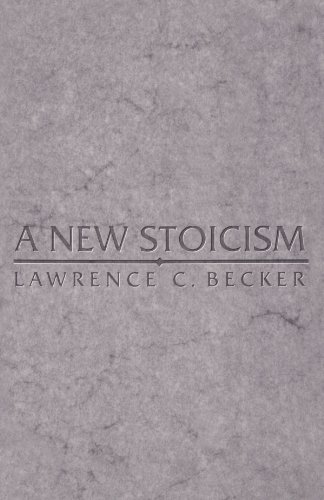
Lets move to your final choice
A New Stoicism byLawrence Becker. This is a more academic book than your other choices.
Lawrence Becker is a retired philosophy professor. The first time I encountered A New Stoicism was in the context of a book group discussion in New York. It’s quite a difficult book to read in some ways; if you don’t have a certain amount of background in philosophy, you’re probably not going to get as much out of it as you should, although Becker himself is aware of this. The book is structured so that at the end of each chapter there is a commentary, and the commentary is very technical and is where he goes back to the original sources and says things like, ‘I made this point in the chapter because it’s relevant to these other thinkers, these other quotations’. It’s very academic in that sense. But the main sections of each chapter can be read, can be understood, by somebody with little or no background in philosophy.
“Becker wants to explore how much Stoicism can be updated to be compatible with modern science, with modern philosophy”.
One slightly odd feature of the book is that when he writes about Stoics, he writes in the first person plural. So he says ‘we’ do certain things, or this is something that happened to ‘us’. He reminds the reader throughout that he is a Stoic, not just a scholar of Stoic philosophy. The reason it’s called A New Stoicism is because unlike, for example, the Buddhist tradition, or even the Christian tradition, Stoicism was interrupted by the fall of the Roman Empire. The golden years for Stoic philosophy was five centuries, give or take, from 300 BCE to the second century. The last major Stoic was Marcus Aurelius. Stoicism as a philosophy kept on in the Roman Empire for a little longer, but then eventually, the Byzantine emperor Justinian closed down the last philosophical school and basically imposed Christianity on everybody. That was the end of all Hellenistic philosophy, not just Stoicism. For many centuries there was no school of Stoicism, no practice, there was no theory going on.
Becker’s point is that there is a resurgence of Stoicism in modern times, that there are people interested in Stoicism as both theory and especially as practice. Becker is interested in updating Stoic philosophy for today. We now have sophisticated cognitive sciences, logic, and so on, and he wants to explore how much Stoicism can be updated to be compatible with modern science, with modern philosophy, and still be called Stoicism.
And is there a core of Stoic belief, Stoic teaching, that can flourish today?
His answer, of course, is ‘yes’, and I tend to agree. He updates a number of aspects of Stoic philosophy. So, let me give you just one example to give you a flavour: remember we started out this conversation by talking about Epictetus’ dichotomy of control—some things are up to me; some things are not up to me. Now, Epictetus and the ancient Stoics had a somewhat optimistic view of what is up to us, as it turns out, because of course a lot of modern cognitive science tells us that much human thinking is not conscious, and that a lot of the time we engage in rationalising about things more than in proper rational thinking.
Most of the time, I suspect.
Exactly. Becker takes that into account, and says, ‘Look, we need to understand that even the dichotomy of control has to be revised and updated as it turns out there are fewer things that are completely under our control.’ If you were to go with the most extreme view that I’ve seen coming from cognitive science, which is the idea that conscious thinking is entirely an illusion, it’s all about rationalisations, then Stoicism would collapse.
So do most of our analyses of what we’re doing in life. There’s not much point in ethics after that, just to take one example.
Yes, and not only that, but science itself would be threatened, because then I could just turn the table and say, ‘Oh, you cognitive scientists, you think that you’re the only ones not rationalising’ and the whole damn thing collapses. Becker doesn’t go that far, fortunately. And I don’t either. His idea is that you need to take seriously the findings of cognitive science, and update some things, and have a more modest view of human rationality; but as long as there’s a core of your rationality, as long as it’s possible for human beings to think rationally and engage in the kind of reflective exercises that Epictetus was teaching to his students, then an updated version of Stoicism is possible and desirable. That’s the sort of project Becker is engaged in.
“Larry Baker and James Stockdale are show just how much a human being can actually deal with”
I also want to say something about Becker himself as a man. I met him through a common friend, and this common friend told me stories about Larry that put everything in a different perspective for me. Before I met him, I thought of him as just the author of an academic book on Stoicism. Well, it turns out Larry was
hit by polio when he was young, and this crippled him, and for three years he was in rehabilitation. He completely lost the use of both legs and arms. Then, eventually, he recovered the use of his legs to some extent, though never his arms or hands; and then for several years he has been living in a wheelchair. Despite this he had a successful career as a university professor, and would grade his students’ papers by writing with his foot. In fact his foot writing was much neater than my friends’ handwriting, apparently. Becker had a dedication to his students and to his career and didn’t allow his physical problems to stand in his way. For me this made it clear that he had lived the philosophy of Stoicism—talk about having no control over external circumstances! When I met him I did a long interview with him
which is available on my website, and we discussed his experience in life and how it related to his Stoicism.
I’ve read an account by James Stockdale who survived torture and solitary confinement during the Vietnam War after his plane was shot down without breaking down through Stoic techniques, based on his memories of having studied Epictetus. I can understand why this is a useful philosophy to hold in adversity because it could give you a focus and a strength to discount external obstacles, but in ordinary life do we really need it?
Yes, I think we do. People like Larry Baker and James Stockdale are obviously fascinating because they show you just how much a human being can actually deal with. But most of our lives do present us with challenges, even minor challenges, for which I think Stoicism is perfectly appropriate. Let me give you an example, I have a very good friend, who is both a practising Stoic and a practising Buddhist. He says Stoicism has helped him cope with moderate inconveniences, like getting on the subway in the morning to go to work in New York City and having to deal with the obnoxious behaviour of some people. He told me: ‘It used to be that I got irritated, it used to be that I started my day miserably because of somebody doing something obnoxious on the subway, but once I started practising these things and sort of readjusting my mental expectations, I just saw these things as the kind of behaviour that really cannot touch me.’
So these are psychological tricks aren’t they? Is it really philosophy any more at that point?
Well, it is in this sense. One of the reasons Stoicism came back in modern times is because these ‘tricks’ are useful. Some of them have been elaborated into fully-fledged psychotherapeutic approaches, such as Viktor Frankl’s logotherapy; cognitive behavioural therapy; Albert Ellis’ rational emotive behaviour therapy, and others. All of these therapies bear traces of Stoicism. Ellis and Frankl both read the Stoics, and used their ideas as a starting point. So in some sense, yes, it’s a bag of psychological tricks—but the reason it’s a philosophy is because this bag of tricks is put into a more general context and framework, and this is the idea that the good life is the moral life, and that the moral life is the life where you practise the four fundamental virtues: temperance, justice, courage, and wisdom.
------------------------------
Interview by
Nigel Warburton
Five Books aims to keep its book recommendations and interviews up to date. If you are the interviewee and would like to update your choice of books (or even just what you say about them) please email us at
editor@fivebooks.com
Ancient Philosophy How to Live PhilosophyStoicism
------------------------
Support Five Books
-------------------------
BOOKS BY MASSIMO PIGLIUCCI
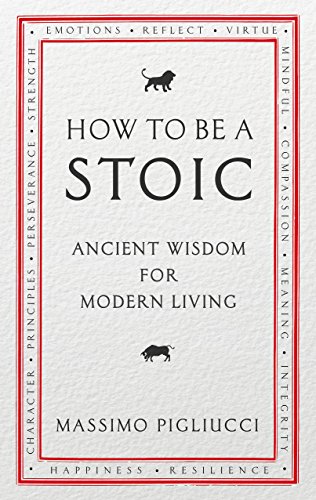
How To Be A Stoic: Ancient Wisdom for Modern Living
by Massimo Pigliucci

Making Sense of Evolution: The Conceptual Foundations of Evolutionary Biology
by Massimo Pigliucci

Tales of the Rational : Skeptical Essays About Nature and Science
by Massimo Pigliucci
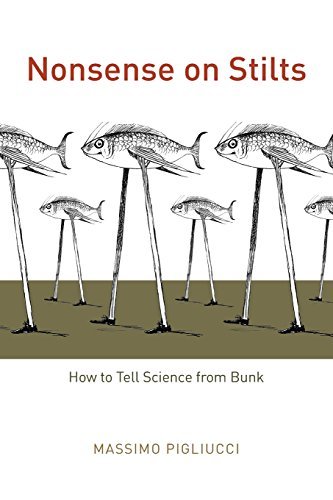
Nonsense on Stilts: How to Tell Science from Bunk
by Massimo Pigliucci
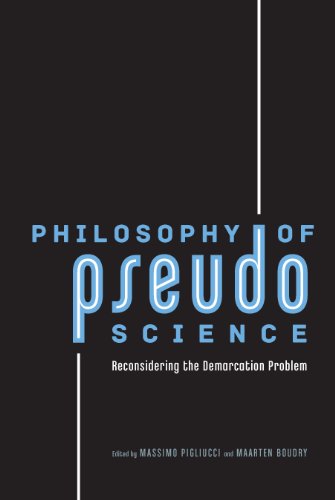
Philosophy of Pseudoscience: Reconsidering the Demarcation Problem
by Massimo Pigliucci
RELATED INTERVIEWS
















